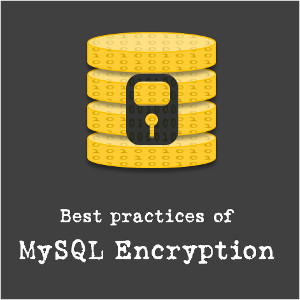Oracle DBA Training

Intellipaat
Course Summary
Enroll today for Oracle DBA Training and Certification Course and master the concepts of Database Administration.
-
+
Course Description
This Oracle DBA Online Training Course intends to provide you in-depth understanding of the Oracle Database Server Administration. You will learn about the Oracle DBA Architecture, various concepts, database structures, memory and process architecture, security, schema objects, data backup and recovery.About Oracle Database Administration Training Course
What you will learn in this Oracle DBA Online Training Course?
- Learn about the core database concepts
- Role of database administrator
- Understanding of SQL and PL/SQL
- Physical and logical structure of database
- Introduction to table space
- Configuring and managing the Oracle Network
- Database configuration and programming
- Installation, harnessing cloud, storage management
- Database best practices and scripts
- Prepare for the Oracle DBA Certification
Who should take this Oracle DBA Training Course?
- Software developers and IT professionals
- Database analysts and administrators
- SQL programmers and architects
- Project Managers
- Those aspiring for a career in Oracle DBA
What are the prerequisite for taking this Training Course?
Anybody can take this Training Course. A basic knowledge of database can be helpful.Why should you take this Oracle DBA Training Course?
- Oracle is the market leader in the relational database with a 48.35% market share – Gartner
- An Oracle Database Administrator can earn $94,000 in the United States – indeed.com
- Being an Oracle Certified Professional (OCP)is crucial to work as an Oracle DBA – Oracle
-
+
Course Syllabus
Oracle DBA Course Content
Database IntroductionWhat is the Oracle database? How it functions? Installation of Oracle database 11g.Oracle Database ArchitectureThe Architecture of Oracle server, the key components – Oracle Instance and Oracle Database, the various file types – data files, control files, redo log files.Oracle Storage StructuresThe basics of Oracle Storage structures, logical storage units like tablespaces, data blocks, extents and segments, database Schemas, Schema Objects, Operating System blocks, table statement and way to check “create tableâ€.Memory & Process ArchitectureThe Oracle Instance consists of background processes and memory structures, learn about the Oracle process and memory architecture, shared pool, redo log buffer, and buffer cache.Alert & Trace filesThe Oracle background process errors can be monitored using the Trace Files and Alert Logs, learn how this can be deployed for Oracle Administration and support.Database Startup & User RequestsThe methodology of starting a database instance, initializing parameter files, preparing for startup, serving user requests, understanding of the Server process and user process.Database SecurityLearn about the powerful Oracle database security features, data privacy, regulatory compliance, “create user†process, altering and dropping users, generating profiles and limiting resources, auditing, activity monitoring and blocking.Database Schema ObjectsUnderstanding of Database Schema objects, the various types available like views, tables, clusters, indexes, sequence, database links, packages and procedures, learning how data is stored in database tables, creating of temporary tables and external tables.Deep dive into Schema ObjectsMastering the database Schema objects, learning Materialized View, deploying user-generated schema object for generating sequence, the balanced search tree index structure for placing and locating files, learn about data concurrency and data consistency in multi-user databases, the concepts of Locking and Deadlocks.Oracle Network EnvironmentStudy the client/server Network Environment, configuring the network, connecting to the database, the Oracle Network Environment and database link.Oracle Backup & RecoveryUnderstand how Oracle database ecosystem backup and recovery is deployed, the database testing, database standby, Media recovery options, backup in offline mode.Oracle Recovery Manager (RMAN)Learn the significance of Oracle Recovery Manager, how it deploys performance, management and restoration of entire databases, learn about SQL Loader, Oracle Data Pump for import and export and support for External Table.Data Dictionary & Dynamic Performance TablesThe Oracle Data Dictionary contains information related to database privileges, objects, users, and roles, learn Dynamic Performance Table for identifying instance-level problems, get complete knowledge to work with Oracle DBA.Database TuningIntroduction to database tuning, ensuring higher throughput, lowering response time of time-critical applications, optimizing the storage space, SQL scripts, deploying Index Selectivity, Index Statistics and Table Statistics for tuning the database, understanding Oracle Chained Rows and Locks.Database Tuning ContinuedDeep diving into Oracle Database Tuning, shared pool tuning, improving performance using Data Dictionary, tuning of Data Dictionary, deploying PL/SQL code, code reuse, database buffer.Oracle DBA ProjectProject – Database TuningTopics – This project is involved with working on the Oracle Database for deploying the database performance tuning which includes optimizing and homogenizing the database performance. It is associated with query tuning but also includes DBMS selection, and configuration of the database environment. Some of the tasks that you will perform are–- Space usage monitoring
- SQL scripts monitoring
- Database & SQL tuning
- Table & Index Statistics
- Chained Rows & Locks
This course is listed under
Development & Implementations
, Data & Information Management
, Networks & IT Infrastructure
, IT Security & Architecture
, Project & Service Management
, Quality Assurance & Testing
and Server & Storage Management
Community
Related Posts:





